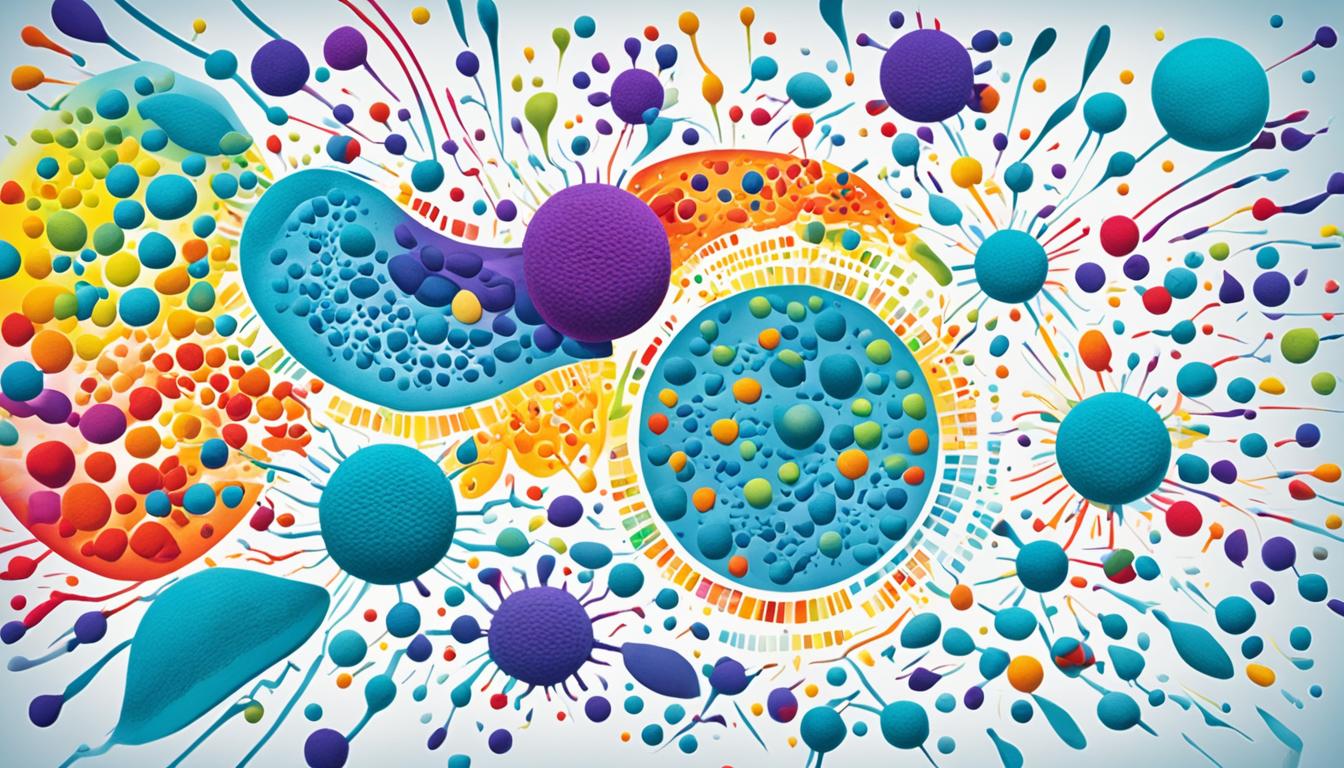Did you know that millions of Americans deal with sleep disorders and sleep loss? This is according to the National Library of Medicine. These issues impact between 50 to 70 million people in the U.S.
There are many kinds of sleep problems, about 90 to be exact. Some signs you may have a sleep disorder are feeling very tired during the day, having trouble falling or staying asleep, or doing strange things while asleep.
Not getting enough sleep or having sleep problems can lead to serious health issues. These include high blood pressure, diabetes, being overweight, feeling very sad, heart attacks, and strokes. Researchers are now looking into using stem cell therapy to help people with sleep problems.
Key Takeaways:
- Sleep disorders and sleep deprivation affect millions of Americans and can have significant health consequences.
- There are about 90 distinct sleep disorders, with symptoms including excessive daytime sleepiness and difficulty maintaining sleep.
- Sleep loss and sleep disorders are linked to hypertension, diabetes, obesity, depression, heart attack, and stroke.
- Stem cell therapy is an emerging treatment option for sleep disorders and has the potential to improve sleep patterns and overall health.
Types of Sleep Disorders and Stem Cell Therapy
Sleep disorders greatly affect how we feel and live daily. Conditions like sleep apnea or insomnia mess with our sleep and can cause health problems. Stem cell therapy is a new treatment that seems to help with sleep issues.
Sleep apnea makes you stop breathing while you sleep. This can happen a lot at night, affecting your sleep and making you tired during the day. Stem cell therapy might help by making your airways work better, letting you sleep without interruptions.
Insomnia keeps a lot of people around the world awake. If you have it, you have trouble getting to or staying asleep, which can make you tired and not function well the next day. Stem cell therapy could improve this by fixing things like brain chemistry or hormones that can be off.
Stem cell therapy for sleep disorders is still being researched, but the early results are exciting. Scientists are looking at different types of stem cells and ways to give them to find the best treatment. If you’re thinking about this therapy, talk to a doctor who knows about it to see if it’s right for you.
Stem Cell Therapy for Sleep Disorders – Current Research and Future Directions
The area of stem cell therapy for sleep problems is quickly growing. Experts are studying how stem cells can help with sleep and are looking for specific ways to treat different issues. They are especially interested in using mesenchymal stem cells for these problems.
In a study published in the journal Sleep, researchers used stem cells from fat to treat sleep apnea. The results were good, showing stem cell therapy may help by making your airways work better and reducing sleep apnea severity.
Scientists are also looking at how stem cell therapy could fix circadian rhythm disorders. These disorders mess with our body’s clock and sleep cycles. By creating cells from induced pluripotent stem cells, they hope to correct our internal clocks and help us sleep in a healthy pattern.
Research and work on stem cell therapy for sleep issues gives hope for the future. By targeting the root causes of sleep problems, stem cell therapy might really change things for the better. It could mean a big improvement in the lives of those struggling with sleep.
| Sleep Disorder | Common Symptoms | Potential Benefits of Stem Cell Therapy |
|---|---|---|
| Sleep Apnea | Pauses in breathing during sleep, excessive daytime sleepiness | Improved airway function, promotion of better sleep cycles |
| Insomnia | Difficulty falling asleep or staying asleep, daytime fatigue | Restoration of a healthy sleep pattern |
The Link between Sleep and Stem Cells
Sleep and stem cells work together for our health. Good sleep helps our bodies heal. It helps stem cells restore our tissues and organs.
By using stem cell therapy to improve sleep, we can boost our overall wellness. There’s still more to learn about how stem cells can treat sleep problems. But, the link we see between sleep and stem cells gives hope for better sleep and health.

